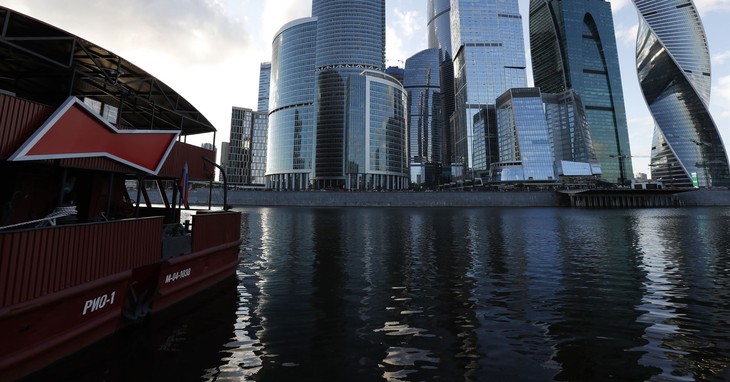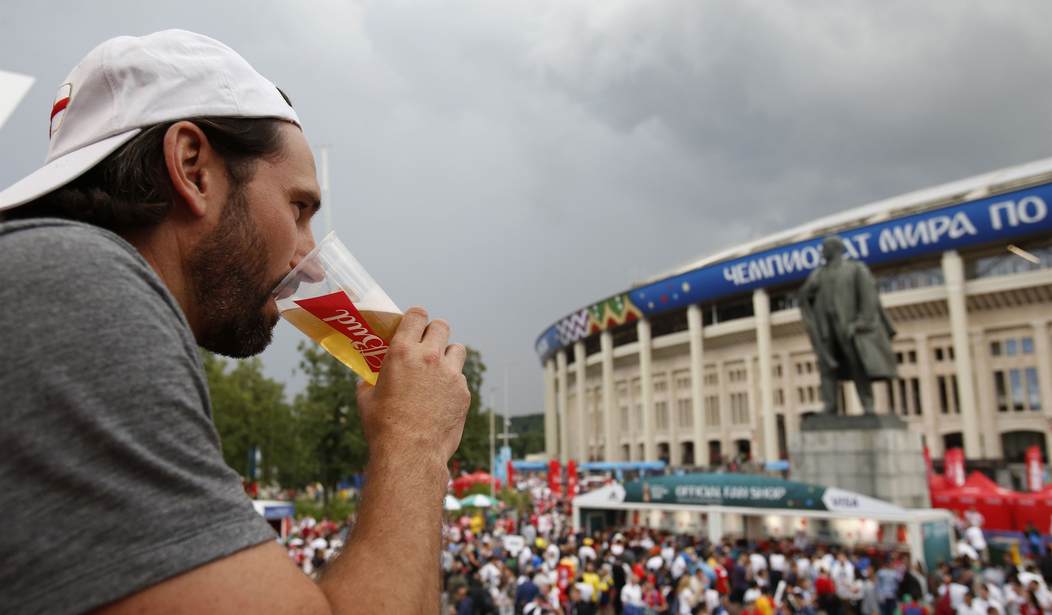The opinions expressed by contributors are their own and do not necessarily represent the views of RedState.com.
What does a multinational corporation do after dropping a small fortune to sell at an event only to find your product is banned? For one American brand, this challenge has foamed to the surface at the World Cup.
After years of controversy surrounding the host country of Qatar, from the implications of corrupt influence to being granted the right to host the World Cup to the dozens of deaths occurring in the bid to get stadiums built in time, the games are taking place this week. Amid the attempt at hyping the tournament one of the bigger stories to emerge from the games already has been the Muslim nation imposing restrictions on a regular basis.
That there is an oppressive religious rule in the nation is a known reality, and it is with more than a dose of amusement to see one MSNBC pundit attempt to imply that the United States has a worse record on human rights than the host nation. Seriously, Ayman Mohyeldin tries to suggest that the US has at least as worse of a record of human rights violations.
I wonder if any of these European and American commentators and pundits grandstanding about human rights will call for the U.S. to be stripped of hosting part of the 2026 World Cup for the way elected leaders and our judicial system have rolled back reproductive rights, moved to ban the word “gay” in public schools along with banning books.
Uh-huh. A nation wantonly hostile towards Jews treats women as proprietary second-class denizens, and criminalizes homosexuality with jail time is considered on equal footing with our country because a law was reverted back to the states and we do not want 1st graders reading sexually provocative books. But as hollow as this argument goes the actions of the government are all that is needed to dispel the desperation.

In the past weeks, as the country is set to host an influx of international visitors, the government of Qatar has decreed that Jewish tourists are forbidden from practicing their faith. Also, it was announced that no pride representations would be permitted in stadiums, something that some attendees at an event in a militantly devout nation were surprised to discover.
Just now: Security guard refusing to let me into the stadium for USA-Wales. “You have to change your shirt. It’s not allowed.” pic.twitter.com/TvSGThMYq8
— Subscribe to GrantWahl.com (@GrantWahl) November 21, 2022
Now comes yet another edict from the Qatar leadership – they have forbidden beer sales inside the stadiums. Some have tried to wave away from this newest restriction (“If for 3 hours a day you cannot drink a beer, you will survive,” said FIFA President Gianni Infantino.) But there is another matter, and that is corporate involvement. The global brewer InBev shelled out a significant amount for the exclusive rights to make Budweiser the official beer of the World Cup. The rights for the longtime advertising partner were paid out for $75 million, and now plans have been significantly altered during the coming weeks.
After a now-deleted social message of, “Well, this is awkward…”, the brewer issued a more formal response as it is facing a shifting landscape of opportunity on site after the stadium ban was enforced.
“As partners of FIFA for over three decades, we look forward to our activations of FIFA World Cup campaigns around the world to celebrate football with our consumers. Some of the planned stadium activations cannot move forward due to circumstances beyond our control.”
What is now permitted are beer sales in some fan festival sites near stadiums for three hours prior to kickoff, and one hour following the games. What will be the thorny result is how much of a burden for such action will be absorbed by the brewer, or if there was a contractual contingency in place, meaning FIFA might have some set-asides or make-good compensation requirements. There will be some logistical issues, as copious amounts of the beers branded for the tournament were in place well ahead of the events.
In truth, the impact on the country would not be too significant for the beer company. While past World Cups have seen the brewer enjoying an increase in sales within the host nation, Qatar’s restrictions would mean a limited scope of market growth. What has been the case is In Bev using a number of brands in its portfolio to promote heavily in other countries, an estimated 70 of such targeted nations. Branding and World Cup logos are prominent in its global rollout.
But the lingering question remains: What of the glut of unconsumed beer that will result at the eight stadiums in Qatar hosting soccer matches? The beer company has made the announcement that it has pledged an unsold lot of beer to be sent to the country that wins this year’s World Cup. As sizeable a stockpile as it appears, there will be many decisions needing to be made as to how they will make this happen.
New Day, New Tweet. Winning Country gets the Buds. Who will get them? pic.twitter.com/Vv2YFxIZa1
— Budweiser (@Budweiser) November 19, 2022














Join the conversation as a VIP Member